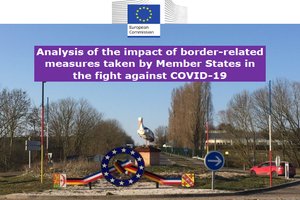News
Review and lessons learned from two years of crisis management at European borders
October 2022
The MOT study for DG REGIO is published! It assesses two years of pandemic-related border management and its impact on border regions; and makes recommendations for future management, also taking into account the current revision of the Schengen Borders Code.
It updates the report "The effects of COVID-19 induced border closures on cross-border regions," published in January 2021.
The analysis revealed the complex nature of cross-border interdependencies. Public authorities lacked a clear vision, and when the crisis occurred they reacted within their national frameworks, which turned their backs on each other on each border, leading to great difficulties in cross-border coordination and inappropriate, disproportionate, unfair and even violent border management measures. Thus, border regions have been more severely affected than other territories. Moreover, the real nature and day-to-day functioning of borders have been largely misunderstood by both public and private actors.
Border management needs to be reinvented, considering borders not only as lines, but also as cross-border regions where people live. Future policies should be based on a comprehensive 360-degree vision; a common responsibility of local, national and European institutions towards border inhabitants; horizontal, vertical and diagonal coordination; and a shift from voluntary to mandatory cooperation, with cross-border action mandates given to institutions. The recommendations address two aspects: local management of cross-border regions and multi-level governance of borders.
More info - Download the study
Back to list
